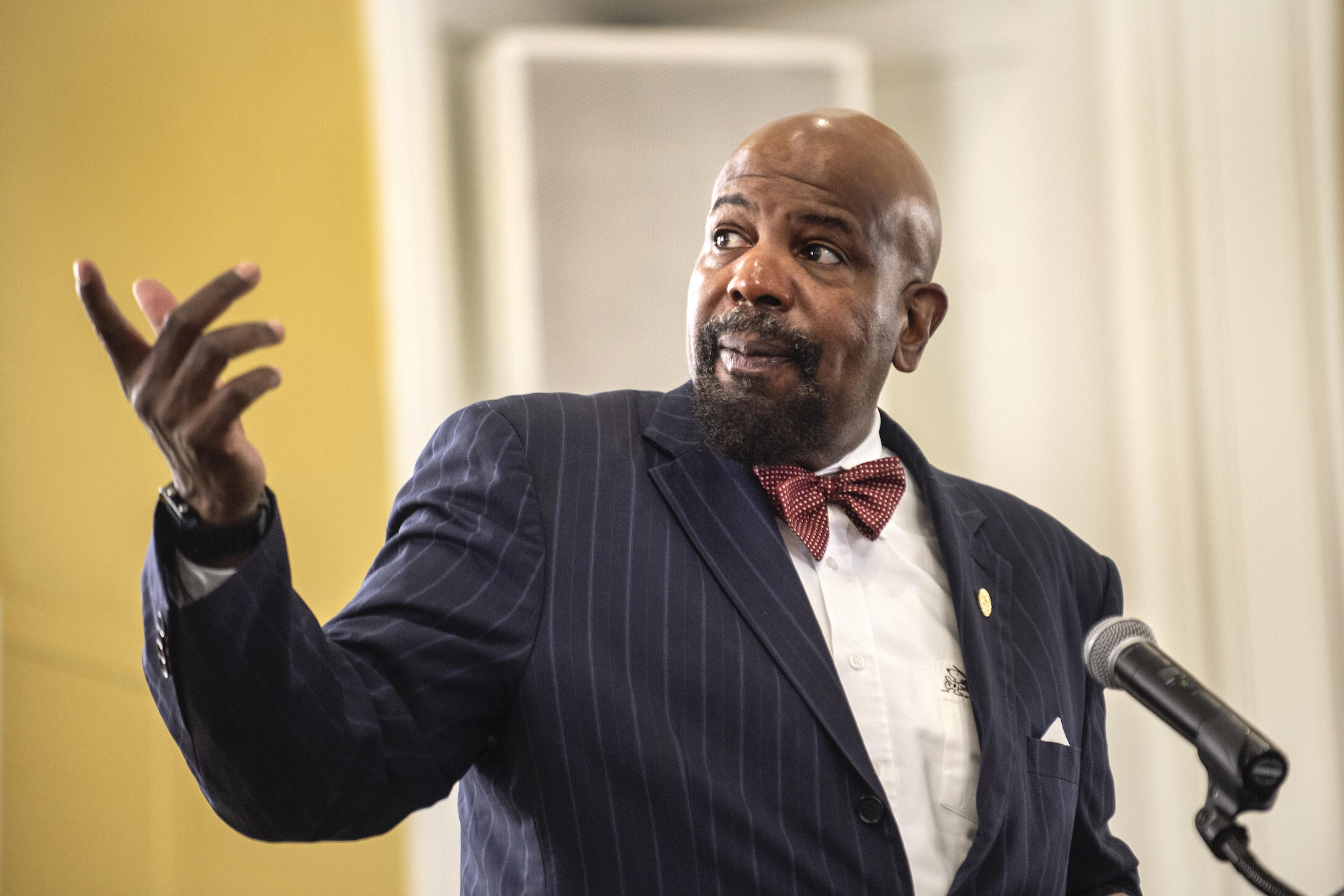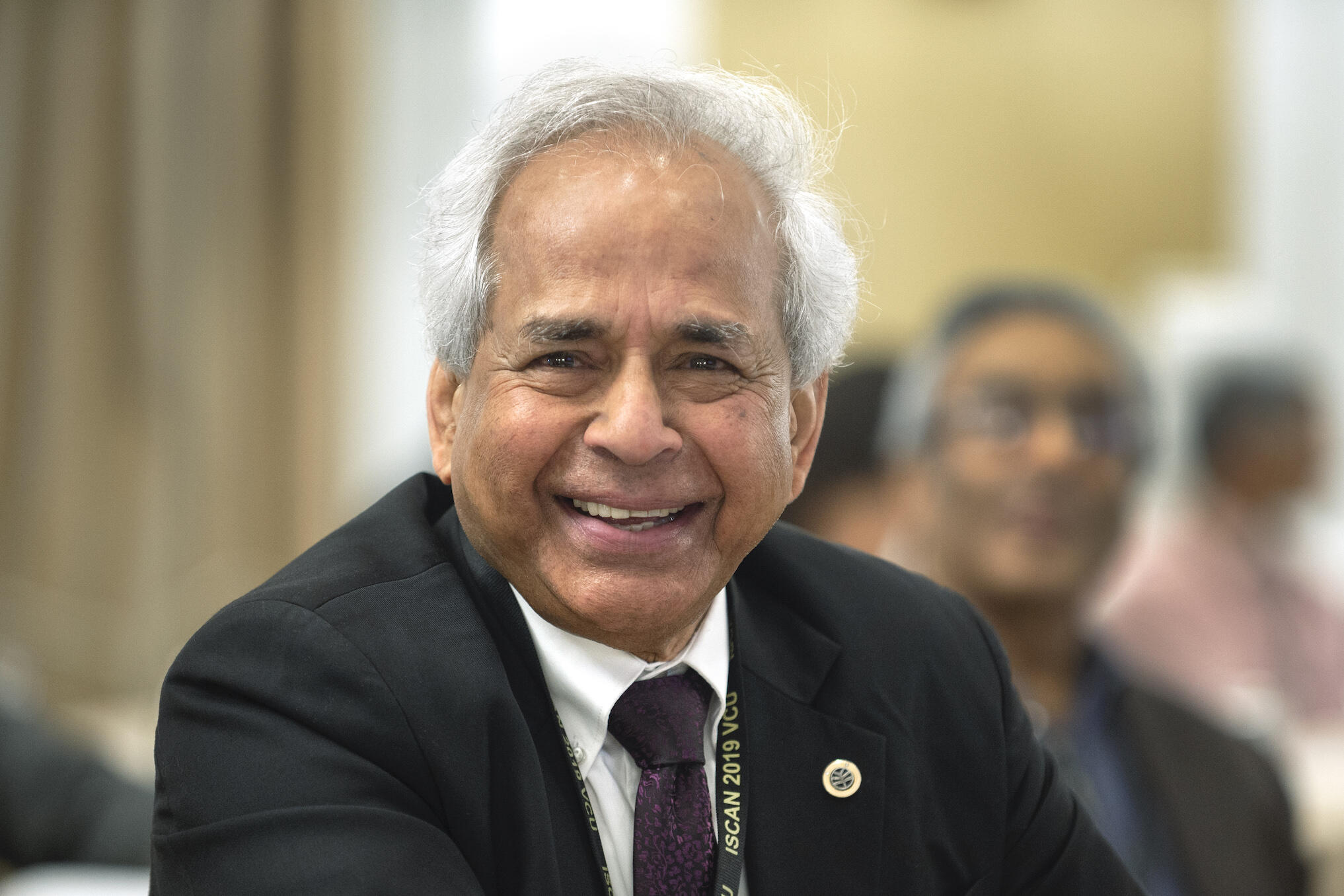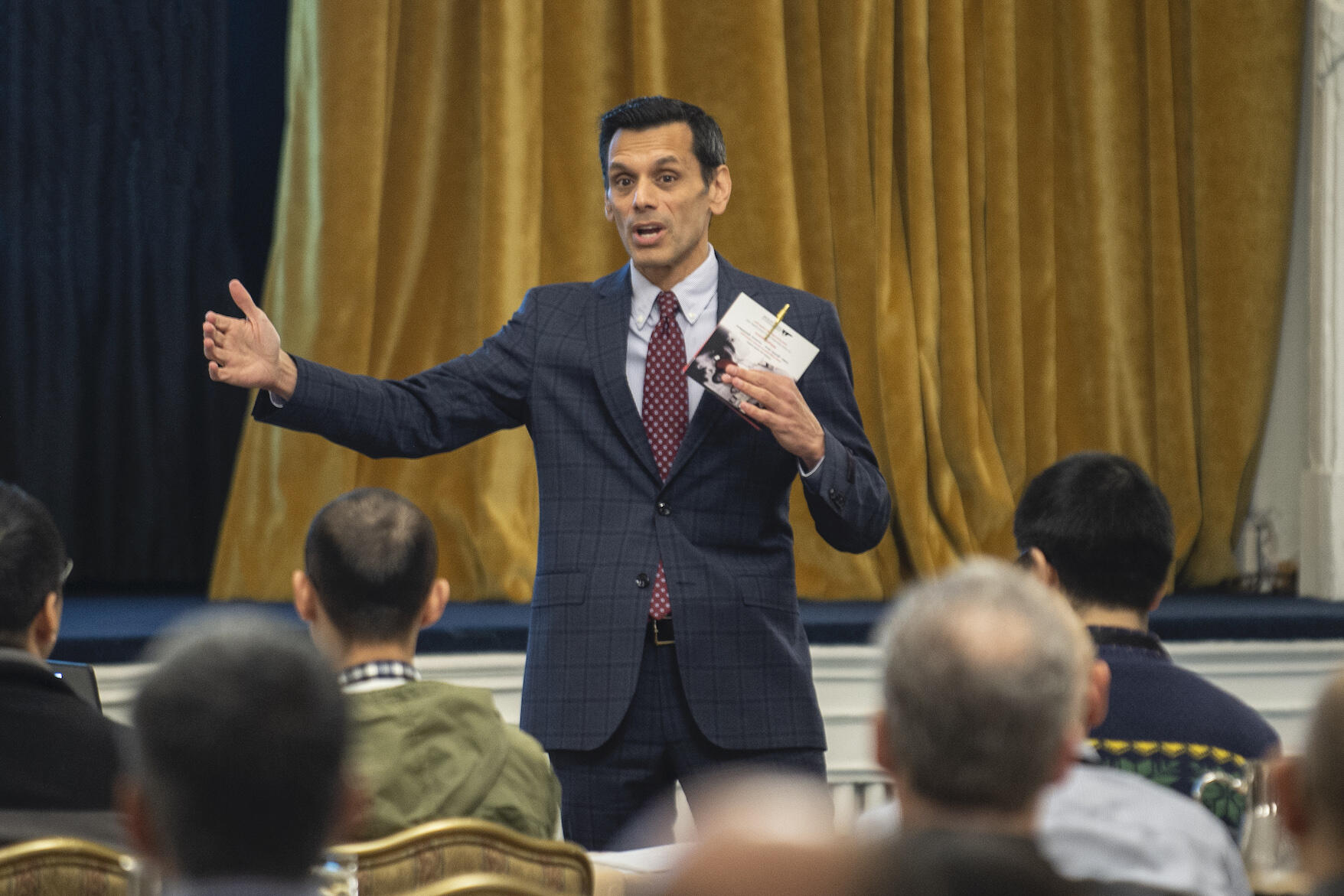
Nov. 5, 2019
International symposium explores how nanoscience can help solve problems in energy, medicine
Share this story
Physics, chemistry, biology, materials science, engineering and medicine researchers from around the world are gathering this week in Richmond for a conference hosted by Virginia Commonwealth University focused on how clusters and nanomaterials can play a role in solving outstanding problems in energy and medicine.
The International Symposium on Clusters and Nanomaterials, held at The Jefferson Hotel, is the continuation of the quadrennial Richmond Conference series that started in 1982. The conference chair is Puru Jena, Ph.D., distinguished professor in VCU’s Department of Physics in the College of Humanities and Sciences.
“We are addressing cutting-edge issues, but the emphasis here is on fundamental science with the potential for technological development,” Jena said Monday before a crowd of 140 symposium participants from 21 countries and five continents.

Over four days, the symposium will explore the structure-property relationships of clusters and nanomaterials, and how nanoscience can lead to breakthroughs in clean and sustainable energy and storage; bioactive, bioresponsive and biomimetic materials; nanotoxicity (health hazards of nanoparticles); diagnostic and therapeutic devices; bioengineering; and regenerative medicine.
“Our focus is on clean, sustainable, abundant and, more important, cost-effective, renewable energy. ... Energy is going to be, if not already, a major crisis of this century,” Jena said. “The other aspect of nanoscience we [are focusing on is] the area of health care, specifically in the area of safe, effective and targeted drugs for everyone.”
The conference is sponsored by VCU’s Office of the Vice President for Research and Innovation, the Office of the Provost and Vice President of Academic Affairs, and the Office of the Dean of the College of Engineering, as well as the U.S. Department of Energy and the journal ACS Energy Letters; with support from the Army Research Office, an element of the U.S. Army Combat Capability Development Command’s Army Research Laboratory.
VCU President Michael Rao, Ph.D., welcomed attendees Monday, saying the symposium, under Jena’s leadership, has continued to bring together the world’s experts to focus on solving important problems facing society through scientific discovery.
“We are only really limited in what we cannot understand, and we continue to find ways to deepen our understanding,” Rao said. “I’m very glad that there’s a focus in this conference on the context of medicine and energy. Those are two very, very important ways in which what we’re really trying to understand really becomes important to a large number of our brothers and sisters out there, our fellow human beings, who are really depending on the great minds, like the ones in this room, to really understand how we can play all this out.”

Cato Laurencin, M.D., Ph.D., a University Professor at the University of Connecticut, delivered a keynote address at the symposium Monday. Laurencin is internationally renowned for his work in biomaterials, stem cell science, nanotechnology, drug delivery systems, and a field he pioneered — regenerative engineering.
Laurencin described how his work in regenerative engineering and nanotechnology is leading to important breakthroughs in treatments for bone defects, tendon injuries, ligament injuries and more. Down the road, he told the audience, he believes the research will allow for limb regeneration.
“The goal is by 2030 to regenerate an entire limb,” he said. “I think it’s very, very possible.”
The conference, which continues through Thursday, is featuring 14 plenary sessions by invited speakers, two poster sessions and oral presentations on “hot-topics” in the field.
Subscribe to VCU News
Subscribe to VCU News at newsletter.vcu.edu and receive a selection of stories, videos, photos, news clips and event listings in your inbox.







